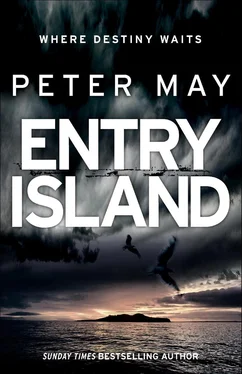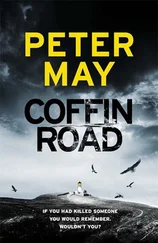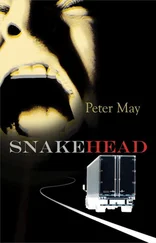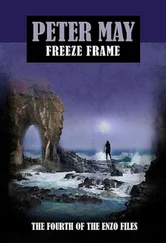Even though he had been expecting it, Sime tensed. When he spoke his voice sounded far away, as if it belonged to someone else. ‘In other words, I get punished and Crozes gets off scot-free.’
McIvir recoiled, almost as if Sime had slapped him. ‘There is no question of punishment involved, Mackenzie. I’m doing you a bloody favour here. It’s for your own good.’
Which is what people always said when administering bad medicine, Sime thought.
The captain lowered his voice again, confidentially. ‘Events involving Lieutenant Crozes have not gone unnoticed. Nor will they be without consequence.’ He stood up. ‘But that’s none of your concern. For now, I want you to go away and get well.’
In the street outside, Sime drew a long, deep breath and despite the news just broken to him by his boss felt free for the first time in years. It was time to go home. Back to the womb.
And, finally, to the diaries.
The drive from Montreal to Sherbrooke took him just under two hours, heading almost directly east into the heart of what had originally been known as the Eastern Townships and was now referred to as the Cantons de l’est. From Sherbrooke he drove down to Lennoxville and took Highway 108 east.
He felt a tightening of his heart and an odd sense of nostalgia as he drove into the forest. For this was where he had been raised, where generations earlier his forebears had carved out a new life for themselves. Literally. Felling trees and clearing land, encouraging virgin soil to grow enough to feed them. So many of the immigrants here had been Scots, and he wondered how many had been victims of the Clearances. He passed a sign for Le Chemin des Ecossais — the Scots Road. And as he drove deeper into the woods, he was struck by the Scottish-sounding names of so many of the towns. East Angus, Bishopton, Scotstown, Hampden, Stornoway, Tolsta.
A warm sun slanted out of the autumn sky, transforming every tree into one of nature’s stained-glass windows. The golds and yellows, oranges and reds of the fall leaves glowed vibrant and luminous, backlit by the angled rays of the sun, turning the forest into a cathedral of colour. Sime had forgotten just how stunning these autumn colours could be, his senses dulled by years of grey city living.
New highways cut through the forest now in long, straight lines, riding the contours of the land, like the Roman roads in Europe that so represented the single-minded determination of a race. Woodland in full colour stretched out before him as far as the eye could see, like a gently undulating ocean.
And he recalled with great clarity the moment his ancestor had first set eyes on it.
It has taken us five days of walking to arrive at our destination, and this is the first chance I have had to update my log. We have been sleeping in the woods, or under hedges, begging for food and water from the houses we passed on the way. Everyone we’ve met has been incredibly generous. Maybe because they, too, at one time this way passed.
What amazes me most are the trees. Where I come from, you could walk all day and never see a single tree. Here it is impossible to take two steps without bumping into one. And the colours, as the days shorten and the temperatures drop, are like nothing I have ever seen before. It’s as if the land is on fire.
As we came further south we started to chance upon villages and townships establishing themselves along the river valleys. Log cabins, some of them little more than huts, built around crudely constructed churches. There were general stores, and sawmills springing up on streams and burns, and little schools where immigrant children were learning to speak a new tongue. Trees were being felled and land cleared, and I was amazed at just how many people there were in what at first had seemed to be such a vast and empty country.
We arrived at the village of Gould in the township of Lingwick, towards noon yesterday morning. Sunday. It was here that we were told we should come if we wanted land. The village is built around a crossroads, with the road dipping away steeply at the north side, towards the valley of the River Salmon. There is a general store, and a church, and a school, and when we arrived there was not a soul to be seen.
That’s when I heard the Gaelic psalm-singing coming from the church. It’s not like normal singing. More a kind of chanting in praise of the Lord, with the congregation led in their unaccompanied song by one or more precentors. It was so familiar to me, and so redolent of home, that all the hairs stood up on the back of my neck. There is something about that sound, a sort of primal connection with the land and the Lord, that has always affected me.
‘What the hell is that?’ Michaél said.
And I laughed. ‘It’s the music of my island,’ I said.
‘Well, I’m glad I don’t come from your island. Sounds bloody weird to me.’
We were standing outside the church when the congregation streamed out into the noonday sun. They cast curious glances our way, two raggedy young men with beards and matted hair standing there in tattered shoes clutching little more than a handful of personal possessions.
When the minister had finished shaking the hands of his flock he walked towards us. A tall, thin man, with dark hair and cautious eyes. He introduced himself in English as the Reverend Iain Macaulay and welcomed us to what he called the Hebridean village of Gould.
‘We’ve come to the right place, then,’ I replied to him in Gaelic. And his eyebrows shot up. ‘My name is Sime Mackenzie and I come from the village of Baile Mhanais on the Langadail Estate on the Isle of Lewis and Harris. And this is my friend, Michaél O’Connor from Ireland.’
All the caution left the minister’s eyes then and he shook our hands warmly. And the congregation, when they heard that I was a fellow Hebridean, began to gather round, each of them welcoming us in turn and shaking our hands.
Mr Macaulay said, ‘You have indeed come to the right place, Mr Mackenzie. Gould was established by sixty Hebridean families cleared off their land in 1838. And they were joined by another forty destitute families from the west coast of Lewis just three years later. It’s as close to home as you can get without actually being there.’ I felt suffused by the warmth of his smile. ‘What’s brought you to us?’
‘We heard that they’re giving away free land,’ I said.
An old man in a dark suit said, ‘Aye, they are that. You’ve timed it well, laddie. The clerk from the British American Land Company arrives in the morning to start allocating parcels.’ He pointed a finger vaguely beyond the church. ‘Just to the south there, in what they call the St Francis tract.’
Michaél said, ‘But why would they be giving away land for nothing?’ He was still deeply suspicious of anyone who claimed to own land, but I was relieved that he was at least moderating his language.
Mr Macaulay said, ‘If there’s one thing there’s plenty of in this country, boys, it’s land. The company is giving it away so that it will be populated by settlers. That way the government will give them contracts to lay in roads and build bridges.’
We set off from Gould early Monday morning along a track that took us maybe half a mile into the forest. The minister was with us, as well as a large crowd of villagers to accompany twenty or more hopeful settlers and the clerk from the British American Land Company.
We arrived at a small clearing after ten or fifteen minutes. The sun was barely over the tops of the trees and it was still icy cold. But the sky was clear and it looked like we were in for another beautiful autumn day.
Mr Macaulay asked those wanting land to gather round. We were going to cast lots, he said.
Читать дальше












